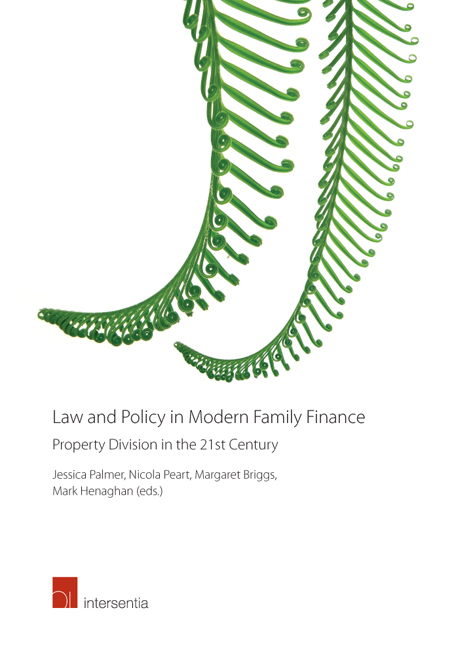Book contents
- Frontmatter
- Foreword
- Acknowledgements
- Contents
- Table of Cases
- List of Contributors
- Chapter 1 Introduction
- PART I WHO SHOULD BE COVERED BY A PROPERTY SHARING REGIME?
- PART II WHAT PROPERTY SHOULD BE COVERED BY A PROPERTY SHARING REGIME?
- Chapter 7 Classifying Relationship Property – A Radical Re-Shaping?
- Chapter 8 What to Do about Trusts?
- Chapter 9 Should Indigenous Property be Relationship Property?
- Chapter 10 Valuation of Relationship Property: An Evaluation of Practice and Procedure
- PART III HOW SHOULD PROPERTY BE SHARED AT THE END OF A RELATIONSHIP?
- Index
Chapter 10 - Valuation of Relationship Property: An Evaluation of Practice and Procedure
from PART II - WHAT PROPERTY SHOULD BE COVERED BY A PROPERTY SHARING REGIME?
Published online by Cambridge University Press: 29 September 2018
- Frontmatter
- Foreword
- Acknowledgements
- Contents
- Table of Cases
- List of Contributors
- Chapter 1 Introduction
- PART I WHO SHOULD BE COVERED BY A PROPERTY SHARING REGIME?
- PART II WHAT PROPERTY SHOULD BE COVERED BY A PROPERTY SHARING REGIME?
- Chapter 7 Classifying Relationship Property – A Radical Re-Shaping?
- Chapter 8 What to Do about Trusts?
- Chapter 9 Should Indigenous Property be Relationship Property?
- Chapter 10 Valuation of Relationship Property: An Evaluation of Practice and Procedure
- PART III HOW SHOULD PROPERTY BE SHARED AT THE END OF A RELATIONSHIP?
- Index
Summary
’ Not everything that can be counted counts; not everything that counts can be counted’
INTRODUCTION
This chapter addresses the topic of ‘valuation‘ and considers how, when, and whether a property sharing regime should include ‘rules on valuation‘. The chapter will use the New Zealand Property (Relationship) Act 1976 (‘ PRA ‘) to frame the discussion.
Rules are like clothes. They need to be adequate for the conditions. A straitjacket is of very limited utility. Relationship property litigation, no less than any other form of civil litigation, can be bedevilled by stultifying delay at considerable cost (both financial and personal) to litigants. Such delay is inimical to the delivery of justice and, in particular, to the inexpensive, simple, and speedy resolution of disputes, as is enjoined in the New Zealand statute. In a real sense, that creates an impediment to access to justice.
Rules of civil procedure are designed to lubricate the litigation process. The question this chapter is designed to address is whether or not specific, or more precise, rules in relation to ‘valuation‘ would enhance and improve the operation of property sharing regimes. This requires a consideration of the role valuation plays in the overall scheme of the PRA and a review of how issues of valuation have been addressed by the courts over the past 40 years (with particular reference to the role of the expert witness). It also requires an acknowledgment that so long as relationship property litigation continues to be conducted along orthodox, adversarial lines, the ability to make radical changes to the way in which valuation evidence is adduced and tested will be limited.
We conclude that, on balance, the introduction of ‘rules on valuation‘ would not marry with the principles of property sharing regimes and the need for the court to maintain a considerable degree of flexibility in dealing with valuation issues.
THE RELEVANCE OF VALUE
THE SCHEME OF THE NEW ZEALAND STATUTE
The division of relationship property in New Zealand is determined by reference to the PRA. The principles governing such division are set out in Part 2 (Preliminary Provisions) of the PRA.
- Type
- Chapter
- Information
- Law and Policy in Modern Family FinanceProperty Division in the 21st Century, pp. 229 - 256Publisher: IntersentiaPrint publication year: 2017



